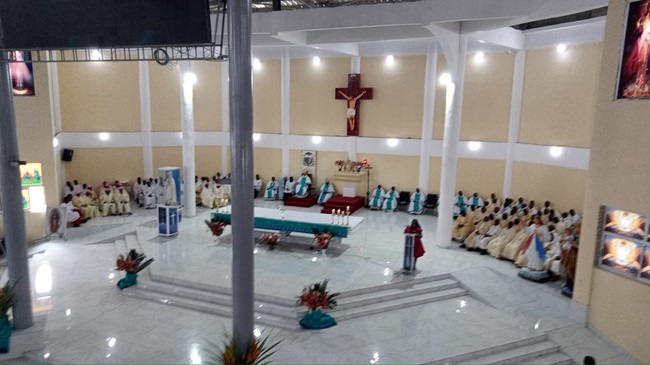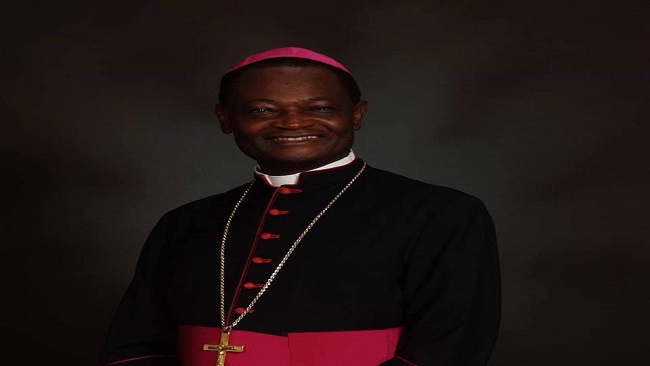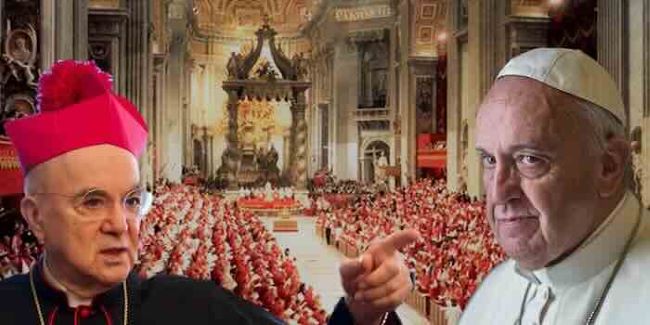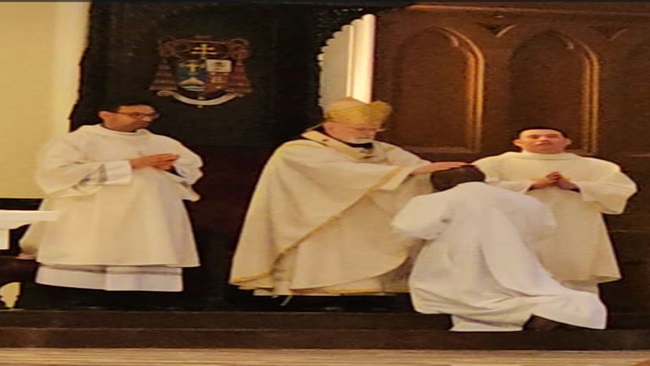1, August 2024
Rome: New report suggests long-term worries for Vatican finances 0
A new analysis of the Vatican’s financial situation by an Italian news outlet contains both good and bad news for papal finances, pointing to relative success in efforts to contain ballooning deficits but also seemingly irreversible long-term declines.
According to an overview of the most recent financial data published July 26 by La Repubblica, Italy’s most widely read daily newspaper, the Vatican’s annual operating deficit grew by roughly $5.4 million in 2023, a lower figure than in past years. The report suggested the result was due to the impact of both spending cuts and also efforts to generate more realistic appraisals of the value of Vatican properties.
Among the cost-cutting measures adopted in recent years include new limits on hiring and contracting, as well as efforts to increase the rents collected on some Vatican properties which are leased commercially and to put others up for sale.
The report cited a recently completed financial statement approved by the Vatican’s Council for the Economy, led by German Cardinal Reinhard Marx. According to the report, the deficit for 2023 amounted to over $90 million, with income of $1.25 billion and expenses of $1.34 billion.
Income in 2023 actually grew by $30 million, according to the financial statement, but expenses also went up by $36 million due to the impact of inflation.
The statement also indicated that the size of the 2023 deficit could still shrink somewhat depending on what the actual performance of the Vatican’s investment portfolios match projections.
The Repubblica analysis also found that income from the annual Peter’s Pence collection, which supports the works of the pope, amounted to $52.5 million in 2023, an increase over the $47.2 million collected in 2022.
Nonetheless, the net gain from the collection was offset by the fact that the fund’s reserves were once again draw upon in 2023 to support the Roman Curia, the Vatican’s chief administrative bureaucracy, to the tune of almost $98 million.
Moreover, the long-term trend in income from the fund is clearly downwards. According to the Repubblica analysis, collections dropped 23 percent overall from 2015 to 2019, and are poised for further reductions.
To some extent, those declines may be related to financial scandals, such as the aborted $400 million purchase of a former Harrods warehouse in London that resulted in the criminal convictions of nine figures for fraud, including Italian Cardinal Angelo Becciu. Given that Peter’s Pence also is sometimes viewed as a referendum on the popularity of the current pope, various controversies surrounding Franci may also have had an impact.
More basically, however, most observers believe the core factor is that much of the Peter’s Pence income derives from wealthier nations, where Catholic populations, and therefore Catholic giving, have been in decline for decades.
Declines in income are especially worrying for Vatican accountants today, given concerns about an aging workforce and unfunded pension obligations down the line. There’s also alarm that rising costs and declining income could eventually compel the Vatican to either trim its payroll or cut salaries, or both, at time when both the volume and the complexity of the workload from around the world is increasing rapidly.
The financial statement reportedly approved by the Council for the Economy concerns the Holy See, and mostly excludes both the Government of the Vatican City State, which is responsible for administration of the physical territory – including income, for example, from the Vatican Museums – and also excludes the Institute for the Works of Religion, the so-called “Vatican bank,” which for 2023 showed $33.2 million in income and a total of $5.9 billion in client assets.
However, it’s considered improbable that income from either the city state or the IOR will be sufficient in coming years to offset the Vatican’s broad deficits, leaving it unclear for the moment how the losses will be sustained.
Source: Crux






































2, August 2024
Bamenda Ecclesiastical Province: Archbishop Nkea highlights six levels of Communion 0
Archbishop Andrew Fuanya Nkea of Cameroon’s Catholic Archdiocese of Bamenda has outlined six levels of communion, which he said Catholic Priests share in their Priestly ministry.
In his Wednesday, July 31 homily during the opening Mass of the General Assembly of Priests of Bamenda Ecclesiastical Province (BAPEC), Archbishop Nkea highlighted Communion with the Trinity, Communion with the Church, Hierarchical Communion, Communion in the Eucharistic Celebration, Communion in the Exercise of Ministry, and Communion in the Presbyterate as vitally important in the ministry of Priests.
He described the July 31 – August 2 meeting as a “wonderful encounter of faith and fraternity”, and added, “The Priesthood is the strongest brotherhood in the world.”
“We are linked by that special fraternity which flows from the mystical oil of Chrism with which we were anointed during our Priestly ordinations, and nothing can weaken or separate us from this divine brotherhood,” the Cameroonian Catholic Archbishop said at St. Thomas Aquinas Major Seminary Bambui (STAMS) in Bamenda Archdiocese.
Communion with the Trinity
“The communion of the Priests is fulfilled above all with the Father, the ultimate origin of all his power, with the Son, in whose redemptive mission he participates, with the Holy Spirit who gives him the power for living and fulfilling his pastoral charity,” Archbishop Nkea said.
The Local Ordinary of Bamenda, who doubles as the President of the National Episcopal Conference of Cameroon (NECC) advocated for “pastoral charity” on the part of Priests.
“Far from being reduced to a series of techniques and methods serving the functional efficacy of the ministry,” he said, pastoral charity “refers to the nature proper of the mission of the church for the salvation of humanity.”
Communion with the Church
“The ecclesia communion of the Priest is lived in diverse ways. In fact, through Sacramental Ordination, he develops special bonds with the Pope, the Episcopal body, his own Bishop, other Priests, and the faithful,” he said.
Communion with the Church, the Archbishop of Bamenda emphasized, “is of utmost importance because without the Church the Priest cannot exist. We are Priests, and we can only experience this Priesthood in its fullness by being in communion with the Church.”
Hierarchical Communion
“Taking form in said ministerial communion are also some precise ties, first of all with the Pope, the college of Bishops, and Priests’ own proper Bishop,” he said referring to communion from the hierarchy viewpoint.
The 58-year-old Catholic Archbishop, who started his Episcopal Ministry in August 2013 as the Coadjutor Bishop of Cameroon’s Mamfe Diocese explained, “There can be no genuine Priestly ministry except in communion with the Supreme Pontiff, the Episcopal College, especially with one’s own Diocesan Bishop who deserves that filial respect and obedience promised during the right of ordination.”
“The Priesthood has absolutely no meaning if it is separated from that of the Bishop in whose Priestly ministry we share,” Archbishop Nkea said.
Communion in the Eucharistic Celebration
“Hierarchical communion is most meaningfully expressed in the Eucharistic prayers,” Archbishop Nkea said.
He explained, “When the Priest prays for the Pope, the College of Bishops and his own Bishop, he expresses not only a sentiment of devotion but attests to the authenticity of his celebration as well.”
“The Eucharistic celebration manifests the unity of the Priesthood of Christ in the plurality of his ministers as well as the unity of the sacrifice of the people of God,” he added.
Holy Mass, the Cameroonian Catholic Church leader said, “contributes to the consolidation of the ministerial fraternity existing among Priests. Without the Eucharist, the Priesthood has absolutely no meaning.”
Communion in the Exercise of Ministry
“Each Priest is to have a deep, humble, and filial bond of obedience and charity with the person of the Holy Father and adhere to his Petrine ministry of magisterium, sanctification and governance with exemplary docility,” he said.
Filial union with a Priest’s “own vision is also an indispensable condition for the efficacy of the Priestly ministry,” the Local Ordinary of Bamenda Archdiocese added.
“Priesthood without communion in ministry has no meaning. In this province of Bamenda we have a provincial pastoral plan that binds us in the exercise of our ministry, and therefore we share commitment in the exercise of ministry through this common pastoral plan,” he said.
Besides being an expression of maturity, Archbishop Nkea said, “This adhesion which entails proceeding in unison with the mind of the Bishop, contributes to the education of that unity in communion which is indispensable for the work of evangelization.”
Communion in the Presbyterate
“By virtue of the Sacrament of Holy Orders, each Priest is united to the other members of the Priesthood by specific bonds of apostolic charity, ministry and fraternity,” Archbishop Nkea said.
Priesthood, he said, is “a true family, in which the ties are not of flesh or of blood but come from the grace of Holy Orders.”
“Belonging to a specific Presbyterate always takes place within the context of a particular church, and not for reasons of incarnation, which in no way alters the fact that the Priest too, as a baptized person, belongs in an immediate manner to the universal church,” he explained.
Archbishop Nkea described the Priesthood as “a moving signpost”, and went on to explain, “The signpost stands on one place and indicates the road to heaven. But the Priest is a moving signpost. You are moving as you show the people the way to heaven.”
“You are also moving towards heaven. You cannot be showing the way to heaven, and you are moving towards hell,” he added.
Archbishop Nkea called upon Priests to “give up everything so as to enter heaven at the end of our lives. It will be a total catastrophe and a waste of life if we direct people to go to heaven and we find ourselves outside heaven.”
Source: aciafrica